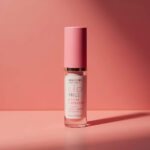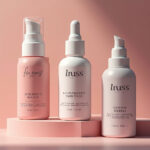What is Acne?
Acne is a common skin condition that affects people of all ages, but it is especially prevalent among teenagers and young adults. It occurs when hair follicles become clogged with oil, dead skin cells, and bacteria, leading to pimples, blackheads, and cysts. While many people associate acne with hormonal changes, there are several other factors that can contribute to this frustrating condition.
Hormones: The Usual Suspect
Hormones play a significant role in the development of acne, particularly during puberty, menstruation, and pregnancy. Fluctuations in hormones can lead to increased oil production, which can clog pores and cause breakouts. However, it’s essential to recognize that hormones are not the sole culprit.
Diet: The Impact of Food Choices
What we eat can significantly influence our skin health. Certain foods may trigger acne flare-ups in some individuals. Here are some dietary factors to consider:
- Dairy Products: Some studies suggest that milk and other dairy products may contribute to acne, possibly due to hormones present in these foods.
- High Glycemic Index Foods: Foods that cause rapid spikes in blood sugar, such as white bread, sugary snacks, and processed foods, can trigger inflammation and acne.
- Fatty Foods: Diets high in unhealthy fats, such as those found in fried foods and processed snacks, may also lead to skin issues.
Stress: A Hidden Trigger
Stress can have a significant impact on your skin. When you’re stressed, your body produces more cortisol, a hormone that can lead to increased oil production and inflammation. Finding ways to manage stress, such as through exercise, meditation, or hobbies, can help improve your skin health.
Skincare Products: Choosing Wisely
The products you use on your skin can either help or hinder your fight against acne. Here are some tips for selecting the right skincare products:
- Non-Comedogenic Products: Look for products labeled as non-comedogenic, meaning they won’t clog your pores.
- Gentle Cleansers: Opt for mild cleansers that won’t irritate your skin or strip it of its natural oils.
- Avoid Harsh Ingredients: Steer clear of products with strong fragrances or harsh chemicals that may provoke inflammation.
Environmental Factors: Pollution and Humidity
Environmental factors such as pollution and humidity can also play a role in acne development. Pollution can introduce harmful substances to your skin, while high humidity can lead to excess oil production. To combat these factors, consider the following:
- Clean Your Skin Regularly: Regular cleansing can help remove dirt, oil, and pollutants from your skin.
- Use Sunscreen: Protect your skin from harmful UV rays, which can exacerbate acne and lead to scarring.
Conclusion: A Holistic Approach to Managing Acne
Understanding acne triggers is essential for effective management. While hormones are significant, factors like diet, stress, skincare products, and environmental influences also play crucial roles. By taking a holistic approach—considering all potential triggers—you can develop a personalized strategy to keep your skin healthy and minimize breakouts. Remember, it might take time to identify your unique triggers, so be patient and stay proactive in caring for your skin.




